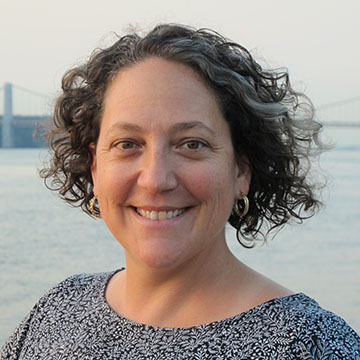
Vicki Ferrini, PhD
OEAB Chair
Research Scientist Columbia University Lamont-Doherty Earth Observatory
Vicki Ferrini is a senior research scientist at Columbia University’s Lamont-Doherty Earth Observatory. Her research interests include seabed mapping and geoinformatics, and she has focused most of her career working to make marine geoscience data findable, accessible, interoperable, and reusable (FAIR). She has a leadership role in several projects related to the management and integration of marine geoscience data including the National Science Foundation-funded Marine Geoscience Data System, Multibeam Advisory Committee, and Global Multi-Resolution Topography Synthesis. She recently served as the chair of the GEBCO Sub-Committee for Regional Undersea Mapping and was a member of the GEBCO Guiding Committee. As head of the Seabed 2030 Regional Data Center for the Atlantic and Indian Oceans, she works closely with stakeholders to develop regional bathymetric data products that contribute to international global syntheses.
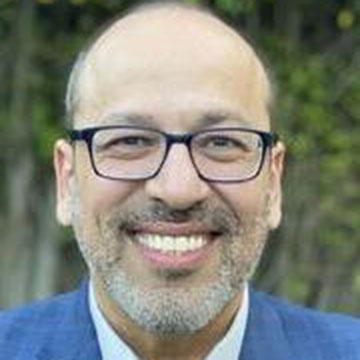
Peter R. Girguis, PhD
Professor of Organismic and Evolutionary Biology, Harvard University
Dr. Girguis is an expert in deep sea biology, instrumentation, and technology. He is a professor in the department of Organismic and Evolutionary Biology at Harvard University, where he leads a lab that studies animals and microbes that live in extreme environments. Dr. Girguis earned a B.Sc. in Biological Sciences from U.C.L.A. and his Ph.D. in Marine Biology from U. C. Santa Barbara. Dr. Girguis’ cross-cutting research, from deep sea vent and seep symbioses to the role of whale microbiomes in epipelagic nitrogen cycling, has led to the discovery of exciting new ocean ecosystems within and beyond the US Exclusive Economic Zone (EEZ). Dr. Girguis has extensive experience working with many federal agencies as well as philanthropic enterprises. He served as chair of the Deep Submergence Science Committee for several years and has been appointed to several notable advisory boards, including the Schmidt Ocean Institute, the Schmidt Marine Technologies Partners, and the Ocean Exploration Trust (where he currently serves as OET’s Board of Directors).

Kevin Hand, PhD
Director, Ocean Worlds Lab, NASA’s Jet Propulsion Laboratory
Dr. Hand currently directs the Ocean Worlds Lab at JPL and has more than two decades of experience advancing the exploration of Earth’s ocean, while simultaneously building toward the possibility of exploration of oceans beyond Earth. Dr. Hand studied physics, astronomy, and psychology as an undergraduate at Dartmouth College, he earned an MS in mechanical engineering and a PhD. in Geological & Environmental Sciences from Stanford University. Much of Dr. Hand’s professional focus has been on the systematic development of an ocean worlds program within NASA and he has worked to triangulate the science priorities, technological challenges, and budgetary constraints that enable (or limit) such a program.
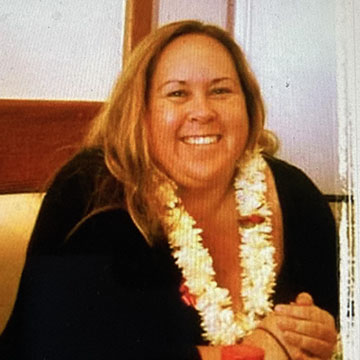
Lesley K. Iaukea, PhD
Director, The Indigenous Knowledge & Earth and Environmental Convergent Science Program
Dr. Iaukea is a Geospatial scientist, author, and educator specializing in converging Indigenous knowledge with geospatial analysis to address and predict coastal disturbances with sea level rise, shoreline erosion, and flooding secondary to weather disturbances. She holds a Bachelor’s degree in Geography focused on sea level rise in Southeast Asia. Her Master’s degree focused on cyclones, community resettlement, and cultural resiliency secondary to climate-forced Displacement, while her second Master’s degree incorporated ancestral knowledge in a climate change culture-based curriculum, k-16. Her Ph.D. created the Makaliʻi Pedagogy and culture-based curriculum that focused on the weather connections to the elements of reference with the sun, moon phases, and star lines to better understand climate change and sustainability issues.
Over the past decade, Dr. Iaukea has been an active member of The Rising Voices Center for Indigenous and Earth Sciences and a climate change consultant in Oceania focusing on resilient pathways through management plans for island nations forced to migrate secondary to Sea Level Rise. She has co-authored a chapter in The Fifth National Climate Assessment (NCA5) and The Status of Tribes and Climate Change Report as she honors Indigenous voices in climate change. She is also the Co-PI of a grant that garnered the largest award for Indigenous research by the National Science Foundation for an Indigenous group called CoPe: Rising Voices, Changing Coasts: The National Indigenous and Earth Science Convergence Hub, which aims to address the impacts of a changing climate to coastal communities and to develop a cross-cultural research framework that introduces a paradigm of interdisciplinary collaboration across Indigenous and non-Indigenous, intellectually-diverse researchers, and knowledge-holders. Dr. Iaukea is also the Hawaii/Pacific Regional lead for the RVCC Hub and is the Director of the 4-week residential interdisciplinary science program which she created and is being housed at the East-West Center in Mānoa, Hawaii.
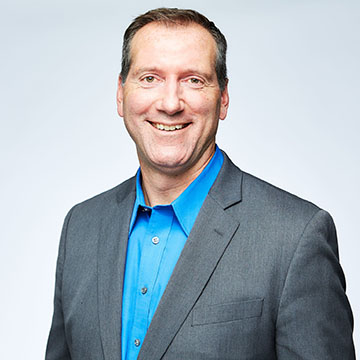
Eric King
Senior Director of Operations
Schmidt Ocean Institute
Eric King received a Bachelor of Science in marine transportation from Maine Maritime Academy, a diploma in ship management from North West Kent College, and a Master of Science in public administration from the University of Washington’s Daniel J. Evans School of Public Policy and Governance. He is also a graduate of the Evans School’s Nonprofit Executive Leadership Institute. After an early career as an officer in the U.S. Coast Guard, followed by supporting the management of U.S. government and commercially funded marine salvage projects, he transitioned to the ocean sciences community as a program manager for the University of Washington’s School of Oceanography. He was brought aboard the philanthropy-funded nonprofit operating foundation Schmidt Ocean Institute in 2010 to help stand up the newly founded organization and prepare the institute’s global class oceanographic research vessel for a decade of collaborative deep-sea expeditions with scientists, researchers, and engineers. For the past 10 years, he has led efforts to advance the frontiers of global marine research by providing state-of-the-art operational, technological, and informational support to pioneering ocean science and technology development projects at sea.
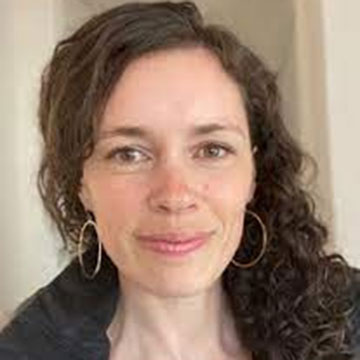
Véronique Le Roux, PhD
Associate Scientist with Tenure, Woods Hole Oceanographic Institution
Dr. Le Roux earned PhDs from the University of Montpellier in 2008 and from the University of Macquarie in 2009. For the past 10 years Dr. Le Roux has been a faculty member and research scientist at at both the Woods Hole Oceanographic Institute and the Massachusetts Institute of Technology where, using petrology, geochemistry, field work, experimental petrology, and 3-D imaging of mantle-derived rocks, she aims to answer fundamental questions about the nature of the Earth’s solid interior.
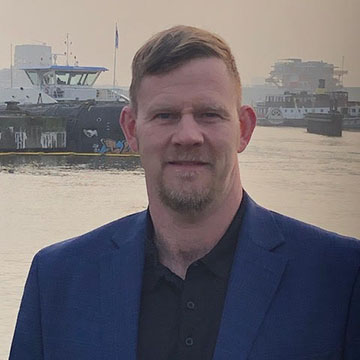
Justin Manley
Founder and President
Just Innovation Inc.
Justin Manley is an innovative technologist and executive with experience in startup, corporate, academic, and public sectors. Manley is a recognized leader in uncrewed systems development and operations. He has employed ocean robots in fieldwork including mapping the RMS Titanic and the search for submerged debris from the Space Shuttle Columbia. In mid-2015 Manley founded Just Innovation Inc., where he advises a variety of clients with a focus on ocean technology and robotics. Since 2015, Just Innovation has supported over 50 clients, including global defense contractors, energy “majors,” and innovation ecosystems such as Canada’s Ocean Supercluster. Manley is very active in professional organizations including the Marine Technology Society, where he is a life member and will become president-elect in 2021 and IEEE where he is a senior member. He is dedicated to innovation, advising startup companies and investors, and serving as a judge for the ANA Avatar XPRIZE. He holds two patents in uncrewed systems oversight and security along with bachelor’s and master’s degrees in ocean engineering from the Massachusetts Institute of Technology.
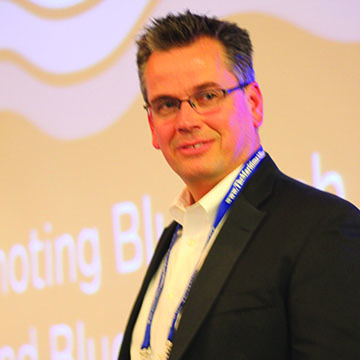
David Millar
Government Accounts Director
Fugro USA, Inc.
David Millar is Fugro’s government accounts director for the Americas Region. Based in the Washington, D.C., area, Millar serves as Fugro’s key account manager for the U.S. government, other national governments within the Americas Region, the United Nations, the World Bank, and other multilateral development banks. He is responsible for overseeing the development and execution of Fugro’s partnerships with public sector clients and overseeing Fugro’s collaborative science (with government, academia, and nongovernmental organizations) activities within the Americas Region.
Millar also leads Fugro’s global support of and participation in Seabed 2030 and the United Nations Decade of Ocean Science for Sustainable Development. He is a current member of the GEBCO Guiding Committee, former Board Member of The Maritime Alliance, and has more than 30 years of ocean mapping, marine geophysical, and hydrographic survey experience. Over his professional career, he has been involved in various aspects of ocean mapping, exploration, and characterization, spanning field hydrography, operations management, software development management, business development, and executive management. He holds a Bachelor of Science in math and physics from Mount Allison University (Canada) and a Bachelor of Science in Engineering in survey engineering from the University of New Brunswick (Canada).
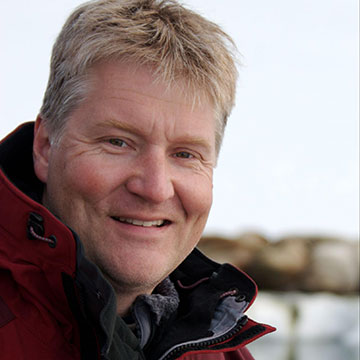
Mark A. Moline, PhD
Harrington Professor of Marine Studies, University of Delaware
Mark received his B.A. in Biology from St. Olaf College in 1987 and a Ph. D. in Biology from the University of California, Santa Barbara in 1997. After a Postdoctoral Fellowship at Rutgers University, Mark joined the faculty at Cal Poly State University in 1998 and founded the Center of Marine and Coastal Sciences in 2004. In 2012, Mark became the founding Director of the School of Marine Science and Policy at the University of Delaware and was named the Maxwell P. and Mildred H. Harrington Professor of Marine Studies in 2020.
Dr. Moline is an Oceanographer with 35 years of experience in research focusing on biophysics, ecology, marine food webs, ocean optics, remote sensing, survey, underwater archeology and underwater robotics. Dr. Moline was an early adopter of autonomous underwater technologies and sensor developer to improve sampling of the ocean in multiple disciplines. He has worked in all seven oceans and has applied these technologies in tropical, temperate and Polar Regions.
Past awards include the New Investigator Program award (NASA), the Young Investigator Program award (ONR), the Presidential Early Career Award for Scientists and Engineers (PECASE), and the Fulbright Distinguished Arctic Chair.
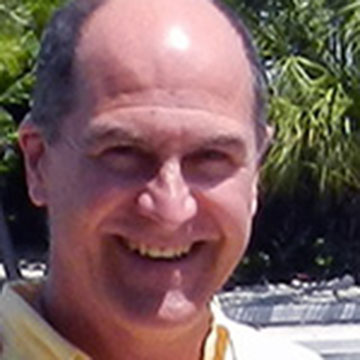
Frank Muller-Karger, PhD
Professor, Biological Oceanography and Remote Sensing, University of South Florida
Dr. Muller-Karger is a biological oceanographer who specializes in research that helps in better understanding how large-scale phenomena, like climate change or other disturbances, affect both ecosystems and people. Dr. Muller-Karger holds B.S., M.S. and Ph.D. degrees in marine science and a Masters degree in management, he has authored or co-authored over 120 scientific publications. Over the course of his career, Dr. Muller-Karger has prioritized the linkage of science to education and has specifically focused on the issue of under-representation of minorities in scientific research programs. He has extensive experience working with K-12 teachers and students and the public to showcase new ocean focused technologies and highlight the importance of the ocean in their daily lives. Dr Muller-Karger served on the U.S. Commission on Ocean Policy and the Ocean Studies Board of the National Research Council/National Academies.
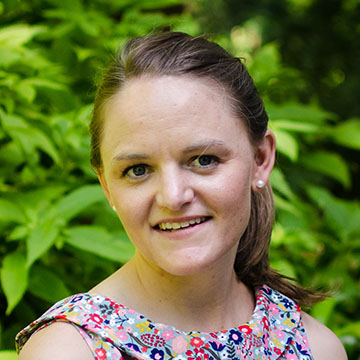
Clara Smart, PhD
Ocean Engineer Johns Hopkins Applied Physics Laboratory
Clara Smart is an ocean systems engineer with a focus on sensors, seafloor mapping, field testing, and system-level evaluation. Following the completion of her doctorate in 2016 at the University of Rhode Island (Chris Roman, PhD, advisor), she joined Johns Hopkins University Applied Physics Lab as a research engineer. She has experience in sensor implementation, algorithm development, fieldwork/test and evaluation, data collection, and data analysis for both oceanographic research and the Department of Defense. During the course of her work, she has gained substantial at-sea experience conducting oceanographic research and performing test and evaluation of a variety of ocean sensors and systems.
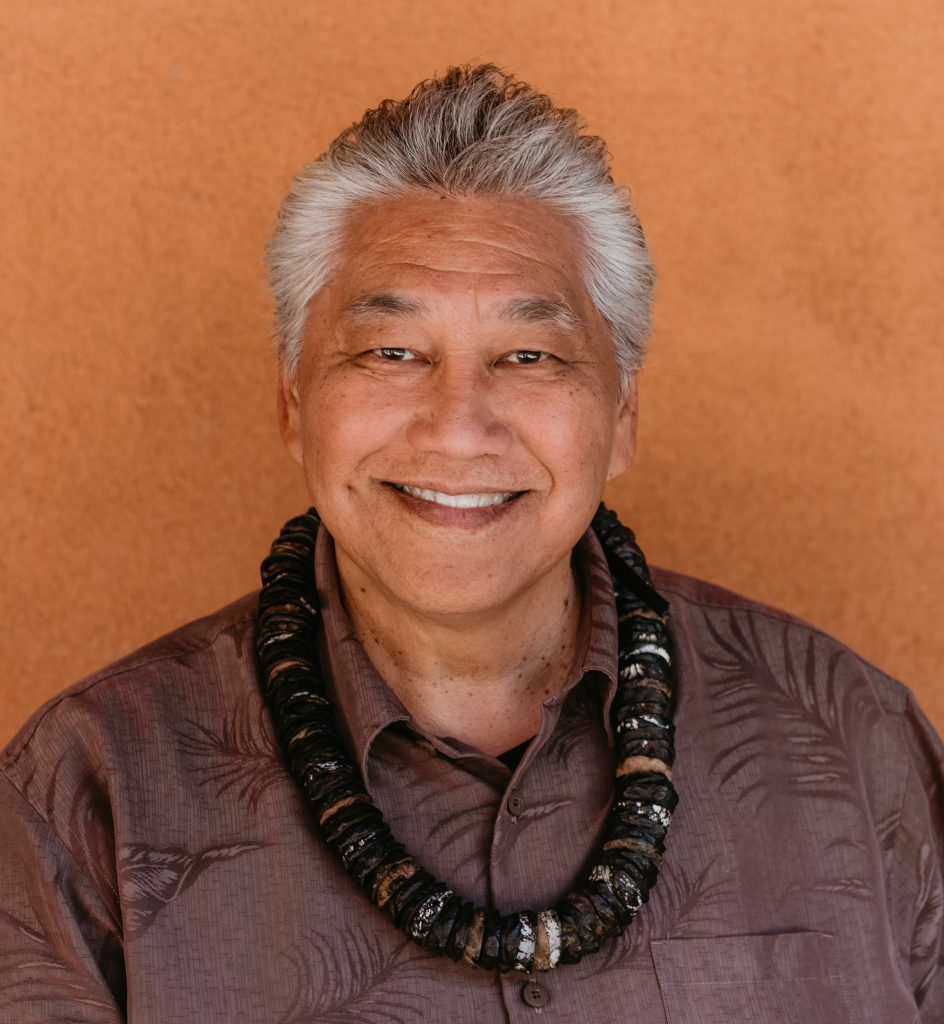
Ramsay RM Taum
Director, Pacific Islands Leadership Institute, Hawaii Pacific University
Ramsay Taum is recognized locally, nationally and internationally for transformational leadership in sustainability, cultural, and place based values integration into contemporary business models. He graduated from The Kamehameha Schools, attended the United States Air Force Academy at Colorado Springs, and earned a B.S. degree in Public Administration from the University of Southern California. His eclectic background and experience in business, government and community service makes him a valuable asset in the public and private sectors and has been instrumental in for-profit and non-profit business.
Ramsay serves as the Director of the Pacific Islands Leadership Institute (PILI) of the Pacific at Hawaii Pacific University in Honolulu, Hawaiʻi. He is also the Cultural Sustainability Planner at PBR HAWAII & Associates, and CEO and founder of the Life Enhancement Institute (LEI) of the Pacific. He serves on numerous community, corporate and non-profit boards and advisories.
Mentored and trained by respected kūpuna (elders), he is a practitioner and instructor of several Native Hawaiian practices and a sought after cultural resource, community facilitator, keynote speaker, lecturer and trainer.
